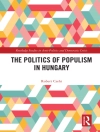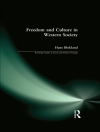When should you engage with difficult arguments against your cherished controversial beliefs? The primary conclusion of this book is that your obligations to engage with counterarguments are more limited than is often thought. In some standard situations, you shouldn’t engage with difficult counterarguments and, if you do, you shouldn’t engage with them open-mindedly. This conclusion runs counter to aspects of the Millian political tradition and political liberalism, as well as what people working in informal logic tend to say about argumentation. Not all misleading arguments wear their flaws on their sleeve. Each step of a misleading argument might seem compelling and you might not be able to figure out what’s wrong with it. Still, even if you can’t figure out what’s wrong with an argument, you can know that it’s misleading. One way to know that an argument is misleading is, counterintuitively, to lack expertise in the methods and evidence-types employed by the argument. When you know that a counterargument is misleading, you shouldn’t engage with it open-mindedly and sometimes shouldn’t engage with it at all. You shouldn’t engage open-mindedly because you shouldn’t be willing to reduce your confidence in response to arguments you know are misleading. And you sometimes shouldn’t engage closed-mindedly, because to do so can be manipulative or ineffective. In making this case, Jeremy Fantl discusses echo chambers and group polarization, the importance in academic writing of a sympathetic case for the opposition, the epistemology of disagreement, the account of open-mindedness, and invitations to problematic academic speakers.
Jeremy Fantl
Limitations of the Open Mind [EPUB ebook]
Limitations of the Open Mind [EPUB ebook]
购买此电子书可免费获赠一本!
语言 英语 ● 格式 EPUB ● 网页 256 ● ISBN 9780192535337 ● 出版者 OUP Oxford ● 发布时间 2018 ● 下载 3 时 ● 货币 EUR ● ID 7358091 ● 复制保护 Adobe DRM
需要具备DRM功能的电子书阅读器












